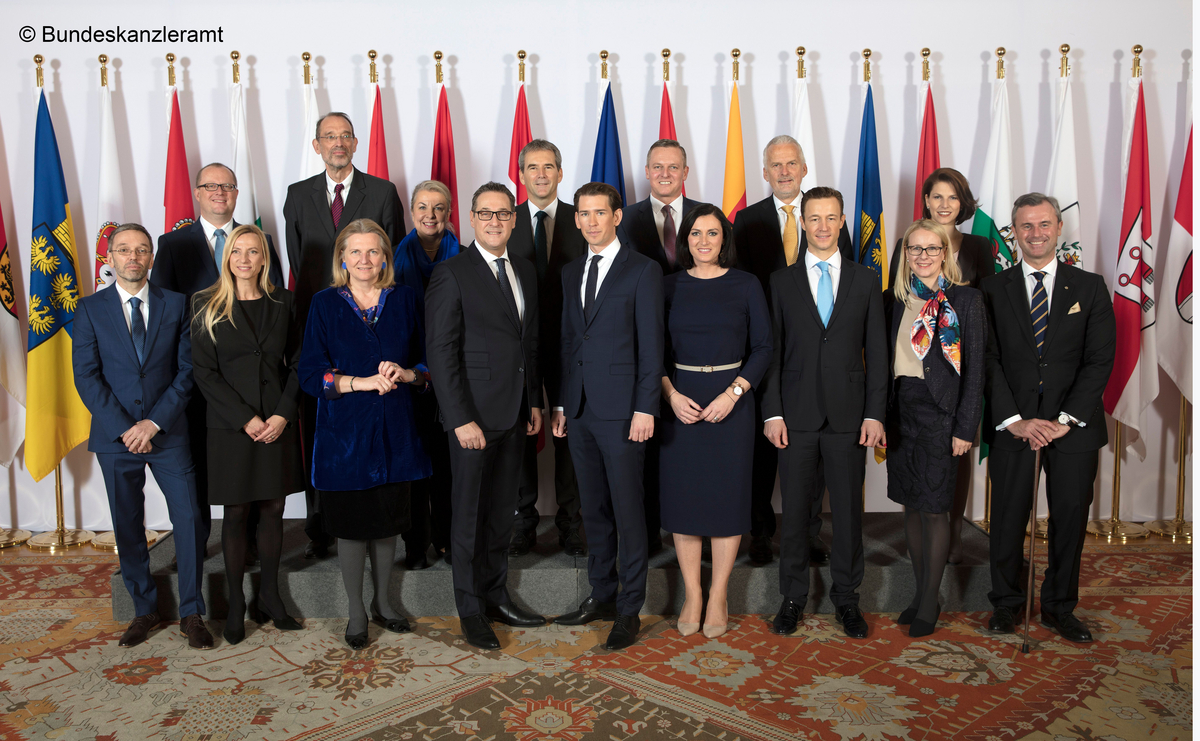
GOVERNMENT PARTICIPATION 2017
After years of grand coalition stalemate and the refugee crisis in 2015, the FPÖ was able to make significant gains in the premature National Council elections of autumn 2017 and then formed a government with the ÖVP under ÖVP Chancellor Sebastian Kurz and FPÖ Vice-Chancellor Heinz-Christian Strache.
Following more than a decade of red-black grand coalition government characterised by arguments, stalemate and a lack of political momentum, as well as the so-called refugee crisis of 2015, which was characterised by uncontrolled immigration and a lack of political crisis management, first the SPÖ toppled its long-time chancellor Werner Faymann and installed Christian Kern as the new chancellor, and parallel to that, within the ÖVP, Sebastian Kurz took over the leadership in his party, which he rebranded from black to turquoise.
The Freedom Party conducted critical opposition work under Heinz-Christian Strache. In him, it had the most experienced and proficient party leader of the time. Kern, Kurz and Strache competed as their respective parties’ lead candidate at the premature National Council elections of autumn 2017.
What followed was a resounding defeat for short-term Chancellor Christian Kern and a clear electoral success for his challengers, Sebastian Kurz and Heinz-Christian Strache. With this clear mandate from the electorate behind them, Kurz and Strache were able to apply themselves to forming a turquoise-blue government. After intensive negotiations, agreement crystallised on content, especially on migration policy, but also in areas of financial, industrial and tax policy, as well as on education policy issues.
In December 2017, for the fourth time in the history of the Second Republic, a federal government including the Freedom Party was inaugurated. The Kurz I cabinet included Heinz-Christian Strache as Vice-Chancellor; Norbert Hofer as Minister for Infrastructure; Mario Kunasek as Minister for Defence; Beate Hartinger-Klein as Minister for Health and Social Affairs; Karin Kneissl as non-party Foreign Minister, and Herbert Kickl as Minister for the Interior. In addition, Hubert Fuchs, a finance and tax expert, was appointed State Secretary for Finance.
Although this government was ultimately to be in office for not even two years, it among other things reformed the asylum and immigration system, made a start on merging the health insurance funds, and made the tax system more family-friendly (keyword: “family bonus”).
Here is a link to the video: A Reform Coalition for Austria.
Here is a link to the brochure "An interim balance sheet of government": Finally fairness for us Austrians. The FPÖ in the Federal Government.
Here is a link to the short version of the government programme: Together. For our Austria. Government Programme 2017-2022.
